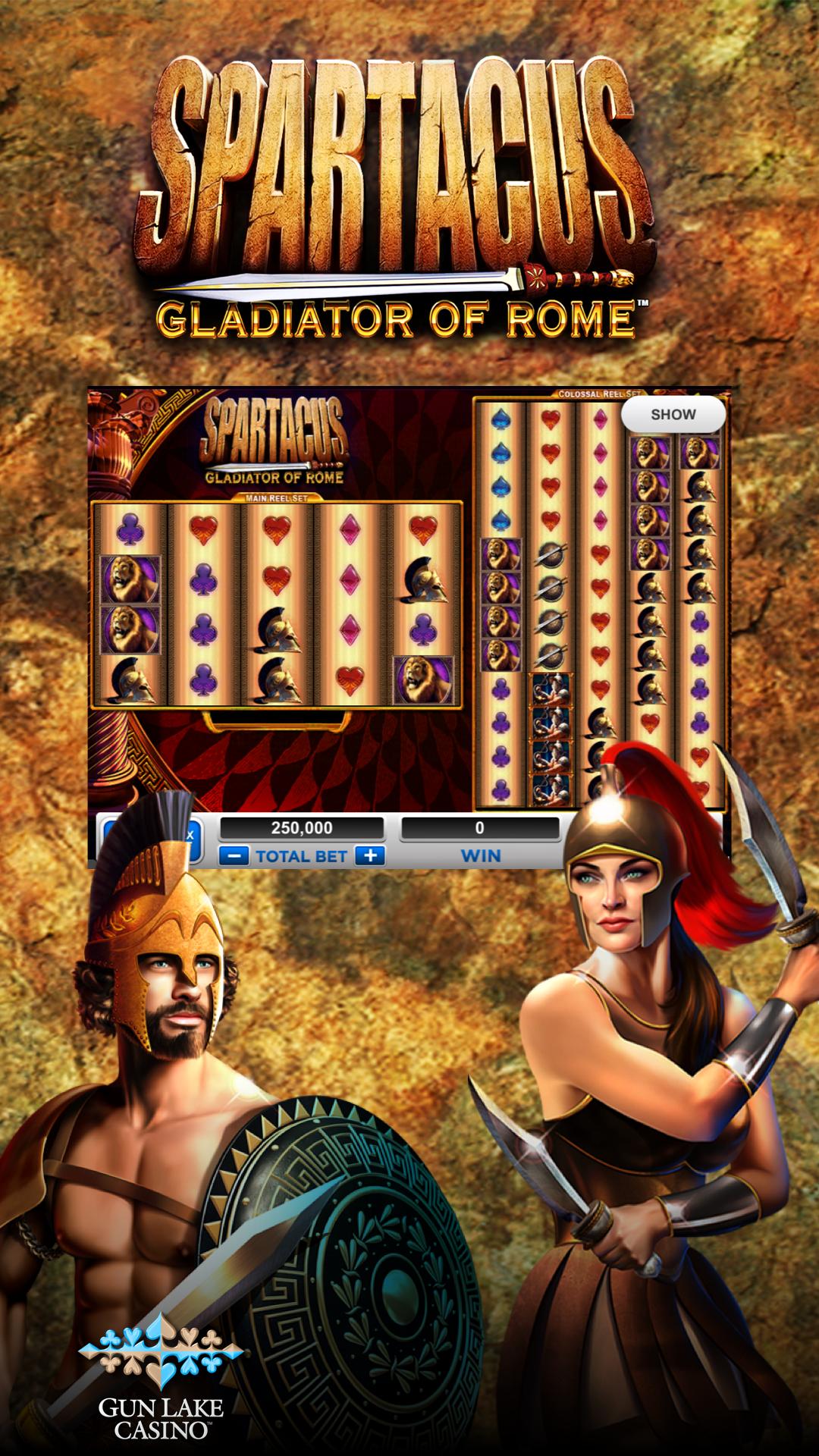Gun Lake Casino Bingo
Harvest Buffet has transitioned from a self-serve buffet to a full-service style buffet. Our friendly F&B team will serve your favorite buffet dishes to you - no need to touch utensils while selecting your meal.
reservations are currently required to dine at harvest buffet.

*NOTE: MUST BE 21 OR OLDER TO ENTER GUN LAKE CASINO AND TO DINE AT EITHER SANDHILL CAFE OR HARVEST BUFFET. FOR MORE INFORMATION, PLEASE CLICK ON OUR PLAY IT SAFE INITIATIVE
THURSDAY / SUNDAY 1PM - 8PM
FRIDAY / SATURDAY 1PM - 9PM

- The best days happen at Gun Lake Casino in Wayland, MI with loose slots, entertainment, dining and more fun!
- Indian Nations, such as the Gun Lake Tribe, have established their own gaming commissions and have developed Tribal police forces and Court Systems to combat crime. Many Tribes have invested heavily in high-tech surveillance equipment.
- 79 reviews of Gun Lake Casino 'The self-serve beverage bar is key. Free, decent coffee (including decaf) with real half-and-half. Free pepsi products. Located in a few self-serve areas. That way I can sip on free drinks all day, watch other people gamble, and not lose money! It's a brand-new casino so the dingyness of cigarette smoke and broken dreams hasn't quite sunk in yet.

GambleAware offer players Bingo Gun Lake Casino and their families advice and guidance on gambling. They offer information and advice to encourage responsible gambling, both to players Bingo Gun Lake Casino and casino operators, and give help tothose whomight have a gambling problem.
Discounts are applied to cash purchases only and not Rewards Dollars purchaeses.
WANT EVEN MORE? ADD ON SOME OF THESE AMAZING FAVORITES:
1lb CRAB LEGS: $13.99
T-BONE STEAK: $13.99
For your health and safety – Harvest buffet is OPERATING WITH NEW PROTOCOLS. To learn more about the Play It Safe Initiative click here.
Indian Nations are the front-line regulators of Indian gaming. They have placed the highest priority on the security of the industry.
No one has a greater interest in protecting the integrity of Indian gaming than the Tribes themselves. It is the most precious economic resource they’ve ever had. Tribes have agreed to allow the federal government to play a role in overseeing Indian gaming, but they will never rely on the federal government to be the primary protector against crime.
Indian gaming is already subject to more stringent regulation and security controls than any other type of gaming in the United States.
Tribal gaming operations are regulated at four distinct levels – Tribal government, state government, the National Indian Gaming Commission and federal government agencies such as the U.S. Justice Department, the FBI, the IRS and the Bureau of Indian Affairs.
Indian Nations, such as the Gun Lake Tribe, have established their own gaming commissions and have developed Tribal police forces and Court Systems to combat crime. Many Tribes have invested heavily in high-tech surveillance equipment. Because Indian Gaming (Class III) is a new emerging industry, only new “state of the art” electronic equipment and machines are in use. Indian Nations have established Industry Standards and Internal Controls. Tribes have more personnel by far regulating Tribal casinos than regulate Nevada casinos.
Compacts between states and Tribes give states some regulatory power over Indian gaming, though IGRA recognizes that the federal government has primary responsibility for government-to-government relations with sovereign Indian nations.
Gun Lake Casino New Years
IGRA created three classes of gaming:
Class I – social games solely for prizes of minimal value or traditional forms of Indian gaming as a part of Tribal ceremonies or celebrations; Class II – bingo and related games, including pulltabs, lotto, punch boards, tip jars, instant bingo and some card games, excluding house banking card games such as blackjack and baccarat; and Class III – all forms of gaming that are not Class I or Class II, including slot machines and blackjack.
The National Indian Gaming Commission has extensive regulatory requirements for Tribal gaming operations and must give final approval to all Indian casino management contracts.
Class I gaming is regulated solely by Tribes. Class II gaming is regulated solely by Tribes if they meet conditions set forth in IGRA. Regulation of Class III gaming is governed by Tribal-state compact.
Gaming holds some hope for reducing Indian poverty, but it is not a panacea. Less than 1/3 of all Indian Nations have gaming operations. More states have lotteries (37) than have Indian gaming (21). Second, even where Tribes have built thriving gaming businesses, these limited and perhaps temporary successes cannot quickly reverse centuries of failed economics.
A flow chart of the regulatory structure looks like this:
Tribal Government
- establish Tribal Gaming Commission
- provide front-line regulation of Tribal gaming, including security and surveillance measures
- manage Tribal gaming operations
- adopt ordinances and issue licenses for gaming operations and employees including background checks
- negotiate compacts with state for Class III gaming
- provide protection and law enforcement
- establish Tribal Court
Gun Lake Casino Reviews

Department of Interior
- rules on land into trust issues
- rules on plans for allocation of Tribal gaming revenues
- conducts investigative studies
- approves Tribal-state compacts
National Indian Gaming Commission
- approves management contracts
- regulates gaming
- conducts background checks & reviews terms of contracts
- authority to enforce civil penalties & impose fines up to $25,000 per day and to order establishment closed
Department of Justice
- enforces criminal violation of gaming laws
- conducts background checks of key gaming employees
- conducts investigative studies
Gun Lake Casino
State Government
Gun Lake Casino Website
- negotiates compacts with tribes for Class III gaming
- enforces provisions of Tribal-state compact